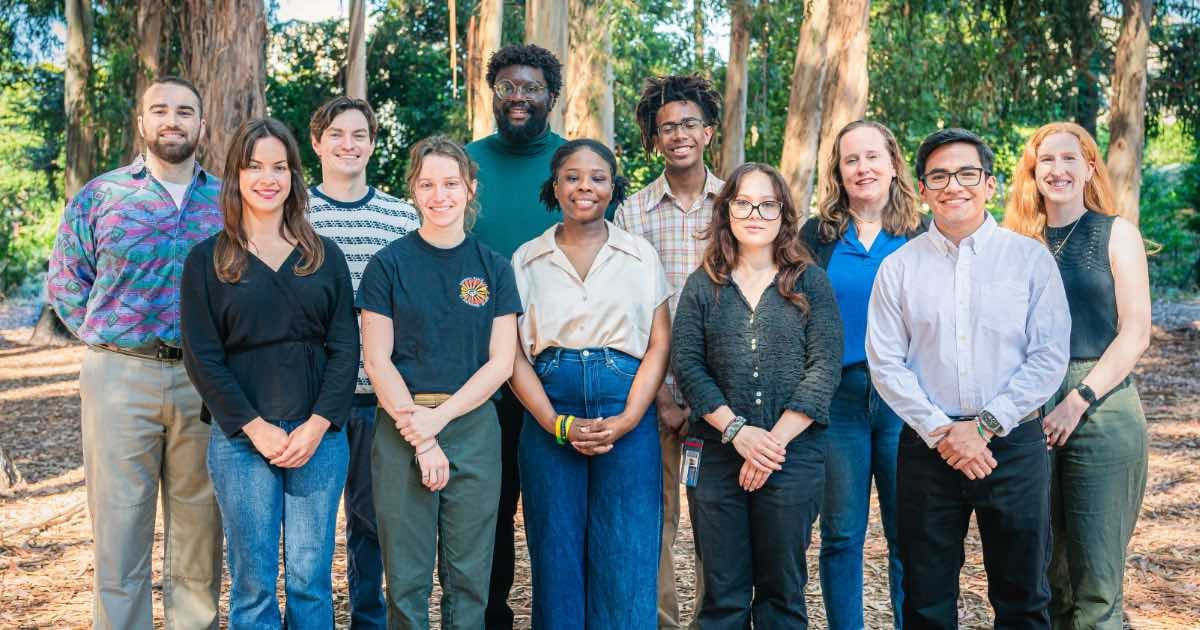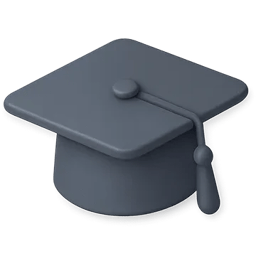A little about me
Hi! I'm Fabricio, a molecular biologist and research scholar at the Ohainle Lab at UC Berkeley, where my team and I study various retroviruses that affect humans and primates. Before diving into my experience abroad, let me first share a bit of my journey and how my passion for research began.
My education in Peru
I come from Peru, where I did my undergraduate in Biology at “La Agraria” University. I became interested in biology since I’ve always been curious about microorganisms. Even though they are so small and tiny, they are crucial for environmental processes, which made me want to investigate them further! At university, my passion for microbiology deepened as I focused my studies on infectious diseases and joined the Molecular Virology Journal Club, where my team and I discussed different research papers about epidemiology, immunology, and biotechnology related to viruses. Besides that, we had lectures on biotechnology concepts that could help to create vaccines and treatments against different retroviral infections.
That experience made me really interested in studying infectious diseases. However, unfortunately, Peru is a country that designates very low investment in public universities; therefore, there were no laboratories focused on diseases that I could join at my university. Still, I didn’t let that discourage my passion for the topic and joined the Infectious Diseases Lab at Universidad Peruana Cayetano Heredia. There, I learned to be more creative and to think outside of the box when there were not enough resources to investigate.
The lack of resources in my country, my drive to explore different communities, and my ambition to keep investigating in a developed and prepared lab led me to apply for research scholarships abroad.
Applying abroad
My journey in the “study abroad” world began when I got into REPU (Research Experience for Peruvian Undergraduates), which is a community of professionals committed to helping Peruvian undergraduate students by organizing scientific research internships in the best institutions in the world, as well as other activities that promote their professional development.
By being part of REPU, I received the necessary training to apply to research programs abroad and connected with my future boss at UC Berkeley. To apply to this program, I endured a three-stage process. First, I had to write a personal and research statement to demonstrate my interest in developing science in my country. Then, I had to upload a video explaining in simple words my research experience and what is the most insightful thing I’ve learned through my short scientific career. Finally, I had an interview where I first had to give my opinion about a scientific paper and then talk about my long-term goals as a scientist and how I plan to contribute to my country.
Soon after the process ended I was gladly accepted! I had some options to select the Lab I wanted to work in. I chose the Ohainle Lab since people there seemed to be closer to each other, and I wanted to feel part of the community and explore a long-term position, which is in fact what I did when I arrived.
What do I do at the Ohainle Lab?
My team and I are currently studying HIV (Human immunodeficiency virus), which is a retrovirus that specifically infects some human immune cells and causes AIDS (Acquired Immune Deficiency Syndrome). Furthermore, we study other retroviruses that infect other primates but not humans, so we specifically try to elucidate the genetic barriers that protect us against viral cross-species transmission.
The human immune system has been evolving for millions of years to restrict viral infections via direct-acting antiviral proteins. A group of unknown proteins can restrict certain viruses but not others, which represents a barrier to cross-species transmission of retroviruses like Simian Immunodeficiency Virus (SIV) to human T CD4 cells. So, my project focuses on identifying which innate immune proteins protect us against different SIV species. I believe my future findings will help to elucidate the details of HIV immunity, as well as give insights into the primate retroviral evolution.

My life at Berkeley
I think that California is my ideal place to live since there are a lot of international students! I’ve got many friends from Latin America and around the world. In our free time, we like to hang out in bars and watch football games. Also, I like to practice sports such as swimming, diving, running, and hiking; having access to most of UC Berkeley's facilities is definitely so cool! Sometimes academic workload is very rigorous and intense and it may be hard to balance at first, but you get used to it with time.
I think that my favorite part of this experience beyond my scientific research is the happy hours after work or a lecture. We meet with my friends and professors and have some food, pizza, and drinks to discuss what we learned or how we are doing as scientists.

My tips
Don’t ever close the doors. Studying as an undergraduate is not the only way you can study abroad. Always keep trying and look for opportunities, programs, or connections that can help you to achieve your dream. Once you’ve established those connections, take advantage of them and don’t let them go.
It’s never too late to pursue your ambitions even if your country does not offer them.




